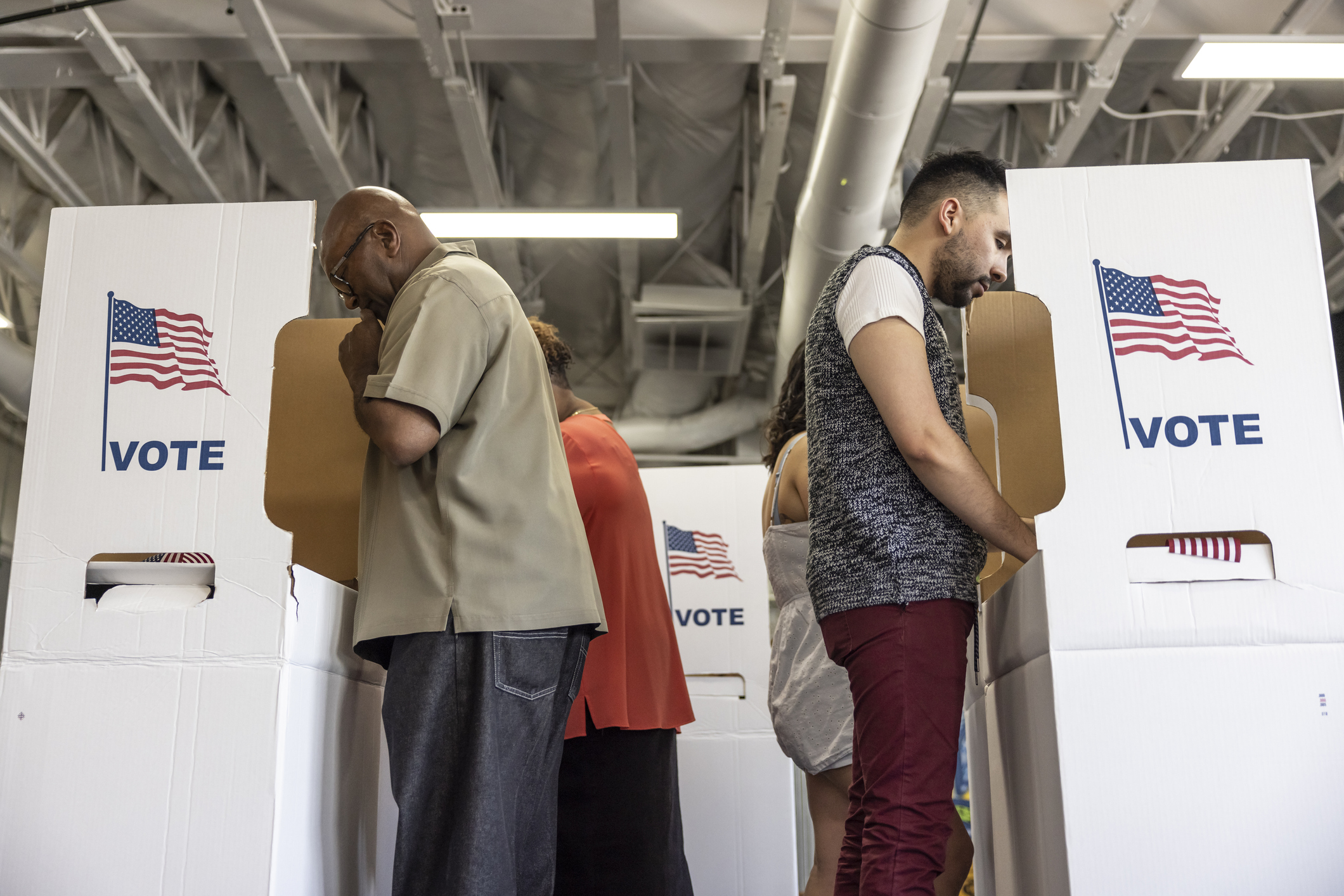By Mel Wilson, LCSW, MBA
The United States Supreme Court on June 8 made an important and unexpected decision by rejecting Alabama’s gerrymandered redistricting map that grossly diluted the Black vote.
The vote was a narrow 5–4 decision that held Alabama violated the Voting Rights Act of 1965. Had the Court upheld Alabama’s redrawn map, it would have eliminated one of the remaining protections of the Voting Rights Act.
The core issue of the case was determining if the congressional map adopted by Alabama lawmakers illegally watered-down the Black vote. It must be remembered that from the end of Reconstruction in 1877 until 1992 (when the State was forced by the Court to redraw its Congressional Districts) Alabama elected no Black members of Congress.
Even after the 1992 change, the state had only one Black member of Congress, despite the fact African Americans account for 27 percent of the state’s population.
Because of Alabama’s history of suppressing and outright denying African Americans the vote, many voting rights advocates held out little hope that Court would rule against Alabama in the Allen v. Milligan case.
Although the court’s favorable judgement came as a surprise, voting rights advocates quickly recognized its significance, and enthusiastically welcomed it.
The Milligan ruling comes at a time when a strong anti-democratic atmosphere pervades within many factions in this country. However, we must guard against assuming that Milligan signals a systemic challenge to the enemies of democracy on the part of the Supreme Court.
A more prudent response to the decision would be to embrace it while cautiously taking advantage of this opportunity to strengthen a fragile Voter Rights Act.
Above all, we must not lose sight of the fact that there has been a steady increase of voter suppression laws and policies over the past decade. It is deeply concerning this trend continues. It must not be ignored.
Ruling Could Lead to Democrats Taking More Seats in U.S. House
Therefore, it is heartening the voting rights advocacy community seems to be putting the Milligan ruling in proper context. There appears to be an emerging consensus on a strategy of not viewing the Milligan case in isolation by directly tying the totality of protecting voting rights to the 2024 presidential election.
The strategy is driven by the realization that the results of Milligan paradoxically opened up the possibility that the Democrats can regain control of the House of Representatives in 2024.
Significantly, the Cook Political Report – considered the gold standard for political analysis – projected that as many as five House seats could go in the Democrats’ direction.
This is because there are similar redistricting challenges in several other states which, if overturned, will result in additional Congressional Districts that could turn blue.
For example, last year a federal district court ordered the state’s congressional map to be redrawn in Louisiana. Because of the Allen v. Milligan ruling, Louisiana will likely have to create an additional Black district.
In addition to Alabama and Louisiana, Georgia’s congressional map may be required to be redrawn resulting in an additional Black district in time for the 2024 elections.
Voting Rights Still in Jeopardy
However, while the decision was well received, the erosion of voting rights protections has not abated as a result of the Milligan ruling. The bottom line is that upholding Section 2 of the Voting Rights Act is by itself is not sufficient for staving off these threats.
In fact, gerrymandering lawsuits based on violations of Section 2 of the Voting Rights Act have had only limited success in the courts.
What the current spate of voter suppression and anti-democracy laws and policies tells us is that we cannot cross our fingers with the hope that the Supreme Court will serve as the protector of voting rights. Given the conservative makeup of the Court that is highly unlikely.
What is needed is a strengthened Voting Rights Act that reflects the realities of 21st century America. It is ironic the landmark Supreme Court decision of Shelby County v. Holder – which gutted another key provision of the Voting Rights Act – is now 10 years old.
During that time, Congress has tried, to no avail, to pass legislation that would restore protections lost in Shelby v. Holder. Every effort has been made to rekindle legislation such as the John Lewis Voter Rights Restoration Act, which passed the House in 2021, but failed to get Senate approval.
It certain that legislation that a strengthens the Voters Rights Act will not become law unless there is a Democratic majority in the House and Senate. In order to achieve that objective, social workers and other social justice advocates have to become fully engaged in the 2024 elections. The loss of the White House and both houses of Congress will not only doom fair elections, but most human and civil rights as we know them.
Resources
American Civil Liberties Union: Historic Win: U.S. Supreme Court Rules Alabama’s Congressional Map Violates the Voting Rights Act by Diluting Black Political Power
Brennen Center for Justice: A Rare Win for Voting Rights at the Supreme Court
Leadership Conference for Civil and Human Rights: Civil Rights Coalition Praises Supreme Court’s Decision to Protect Freedom to Vote, Renews Call for Congressional Action to Restore the Voting Rights Act
National Association for the Advancement of Colored People (NAACP): NAACP Applauds SCOTUS Ruling to Protect Voting Rights
Disclaimer: The National Association of Social Workers invites members to share their expertise and experiences through Member Voices. This blog was prepared by Mel Wilson in his personal capacity and does not necessarily reflect the view of the National Association of Social Workers.

Mel Wilson, LCSW, MBA, is a former senior policy advisor who continues to be active on a range social policy area including youth justice, immigration, criminal justice, and drug policy. He is a co-chairperson on the Justice Roundtable’s Drug Policy Reform Working Group.




